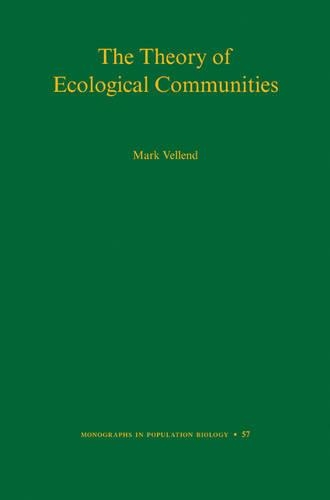
The Theory of Ecological Communities (MPB-57)
(Hardback)
Available Formats
Publishing Details
The Theory of Ecological Communities (MPB-57)
By (Author) Mark Vellend
Princeton University Press
Princeton University Press
14th November 2016
United States
Classifications
Tertiary Education
Non Fiction
Biodiversity / Ecosystems
577.82
Physical Properties
Hardback
248
Width 152mm, Height 235mm
454g
Description
A plethora of different theories, models, and concepts make up the field of community ecology. Amid this vast body of work, is it possible to build one general theory of ecological communities What other scientific areas might serve as a guiding framework As it turns out, the core focus of community ecology--understanding patterns of diversity an
Reviews
"In 1986, Thomas W. Schoener wrote a thought-provoking book chapter describing ecological communities along five organismal and five environmental axes. It was thought-provoking in the sense that Schoener attempted to unify community ecology using a minimal set of variables at a time when ecologists were doubtful of any unifying principle in community ecology. After three decades of Schoener's chapter, community ecologists are still divided about whether there could be a general theory of community... Mark Vellend elegantly attempts to bridge this divide by introducing the theory of high-level processes in ecological communities in his Princeton Population Monograph entitled The Theory of Ecological Communities."--Madhav P. Thakur, Trends in Ecology and Evolution "Vellend (biology, Univ. de Sherbrooke, Canada) provides a useful historical account of the wide variety of methods used in the field to lay the foundation for his proposed resolution of the resulting 'mess.' The book is well written, profusely referenced, and a worthy addition to the distinguished 'Monographs in Population Biology' series from Princeton University Press."--Choice
Author Bio
Mark Vellend is professor of biology at the Universite de Sherbrooke. He is a 2015 recipient of an E. W. R. Steacie Fellowship from the Natural Sciences and Engineering Research Council of Canada.
